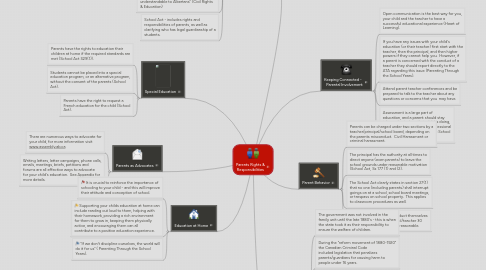Parents Rights & Responsibilities
par Sarah Lawrence


1. Applicable Legislation
1.1. Goals
1.1.1. Goal 1
1.1.2. Goal 2
1.2. "Parents have a right and responsibility to make decisions respecting the education of their children" (Preamble, School Act)
1.2.1. Session Rule 1
1.2.2. Session Rule 2
